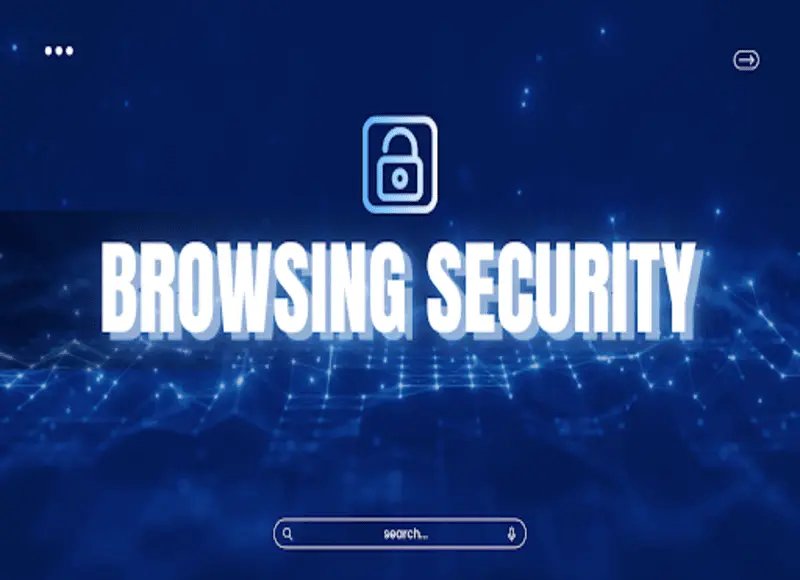Table of Contents
Stay safe online with our ultimate guide to browsing safety. Learn how to protect your personal information and avoid online threats today!

These days, the internet permeates every aspect of our life. Still, this convenience comes with a requirement for awareness. Maintaining your digital wellness and safeguarding your personal data depend on you being sure you are secure online while surfing. This article will lead you through the foundations of internet browsing safety, identify typical risks, and provide doable advice to keep you secure.
Common Online Threats
Malware and Viruses
Viruses and malware are hostile programs meant to damage your device. They may compromise files, pilfer your data, and even gain computer control. Usually via dubious downloads, email attachments, or even reputable-looking websites, these hazards originate from.
Phishing Attacks
Phishing schemes fool you into divulging credit card numbers or passwords, which are private information. Deceptive emails, bogus websites, or even statements that originate from reliable sources may help do this. Check URLs always twice and stay away from clicking on dubious links.
Identity Theft
Identity theft is the theft of your data intended for fraud. Serious repercussions, such as harm to your credit score and financial loss, might follow. Share personal information carefully online, and check your accounts often for any odd behaviour.
Theft and Scams
Online frauds range in kind from romance scams to lottery and financial frauds. Usually promising great benefits in return for personal information or money, these bogus programs Verify the validity of internet offers and be dubious of those that look too good to be true.
Basic Advice for Safe Online Browsing
Use Strong Passwords
Your first barrier against hackers is strong, distinctive passwords. Steer clear of including readily guessed knowledge like birthdays or popular terms. Rather, design difficult passwords using letters, numbers, and symbols. To monitor them, think about keeping a password manager on hand.
Activate Two- Factor Verification
Two-factor authentication (2FA) requires a second form of verification—such as a text message or authentication app—along with your password. This provides an additional degree of protection, making it much more difficult for unauthorized people to access your accounts.
Keep Software Updated
Regular updates are vital for your operating system, browsers, and applications. Often, these updates are security fixes meant to guard against recently discovered weaknesses. Turn on automatic gadget updates to guarantee you always have the most recent security measures.
Use Secure Connections
Check that you are utilizing safe connections while surfing the internet. Websites help guard against eavesdropping by encrypting the data sent between your browser and the site using HTTPS rather than HTTP. Find the padlock icon in the address bar to verify a site's security.
Be Cautious with Downloads
Downloading files from untrusted sources can be dangerous. Viruses and malware are often hiding in apparently innocuous files. Before you download anything, check the source, and then examine downloads for hazards using antivirus software.
Guarding Your Personal Information
Be Wary of Sharing Information
Oversharing on websites or social media can be dangerous. Keep sensitive information like your phone number, home address, or bank data away from public view. Frequent review of your privacy settings helps you manage who may read your data.
Privacy Settings and Controls
Most social media platforms and devices offer privacy settings that help protect your data. Customize these settings to limit data exposure and control who can access your information. Review and update these settings regularly to stay protected.
Employ VPNs for Personal Protection
A VPN encrypts your internet connection, making it more difficult for hackers to access your data. VPNs are very helpful when accessing typically less secure public Wi-Fi networks. To guarantee your privacy, use a respectable VPN provider. If you use the Chrome browser, consider enhancing your online security and privacy using a VPN for Chrome.
Advice on Safe Online Purchasing
Shop on Reputable Websites
When shopping online, stick to well-known and reputable websites. Check for customer reviews and ratings to gauge a store's reliability. Avoid sites that have many negative reviews or lack clear contact information.
Employ Safe Payment Techniques
Credit cards and PayPal's safe payment methods offer better security against fraud than debit cards or direct bank transfers. Many times, these methods include built-in security elements, simplifying the dispute of illegal transactions.
Monitor Your Transactions
Review your credit card and bank statements often for any unusual activity. Right away, report any illegal transactions to your card issuer or bank. Early discovery helps to reduce the harm fraud causes.
Online Safety for Teenagers and Children
Establishing Guidelines and Limitations
Clearly define your children's internet usage guidelines and restrictions. Discuss suitable internet activities and the need to avoid distributing personal data.
Educating About Online Risks
Children and teenagers should be taught the possible risks of the internet, including cyberbullying, predators, and unsuitable information. Help children negotiate these hazards by using age-appropriate tools and materials.
Parental Authority and Surveillance
Parental control software lets you track your kids' internet behavior and limit access to dangerous materials. Stay active in your children's digital lives and use these tools to establish a secure online environment. Content filtering may also be a good approach to shielding kids from inappropriate content.
Keeping Safe in the Digital Age
To sum up, being safe online requires both awareness and aggressive action. Understanding shared risks and using best practices can help you greatly lower your chance of being a victim of internet hazards. Always be careful about providing personal information; remember to use strong passwords, turn on two-factor authentication, and keep your software current. These ideas will help you enjoy a more safe and secure online environment.
FAQs
1. Should I believe my computer is compromised by malware? What should I do?
- Using your antivirus program, perform a complete system scan and follow its directions to eliminate any hazards found. If the issue persists, consider consulting a specialist.
2. How can I find out if a website is safe for online purchasing?
- Look for HTTPS in the URL and a padlock icon in the address bar. To guarantee the website's validity, review client reviews and ratings.
3. A phishing email exhibits what signals?
- Urgent or threatening statements, dubious links, and demands for personal information abound in phishing emails. Look at the sender's email address and use caution when handling unexpected attachments.
4. Why does two-factor authentication matter?
- By demanding a second kind of verification, two-factor authentication provides an additional layer of protection and greatly makes it more difficult for illegal users to access your accounts.
5. How may I guard my personal data on social media?
- Change your privacy settings to limit who may see your data, avoid disclosing private information, and exercise caution when considering friend requests from total strangers.






